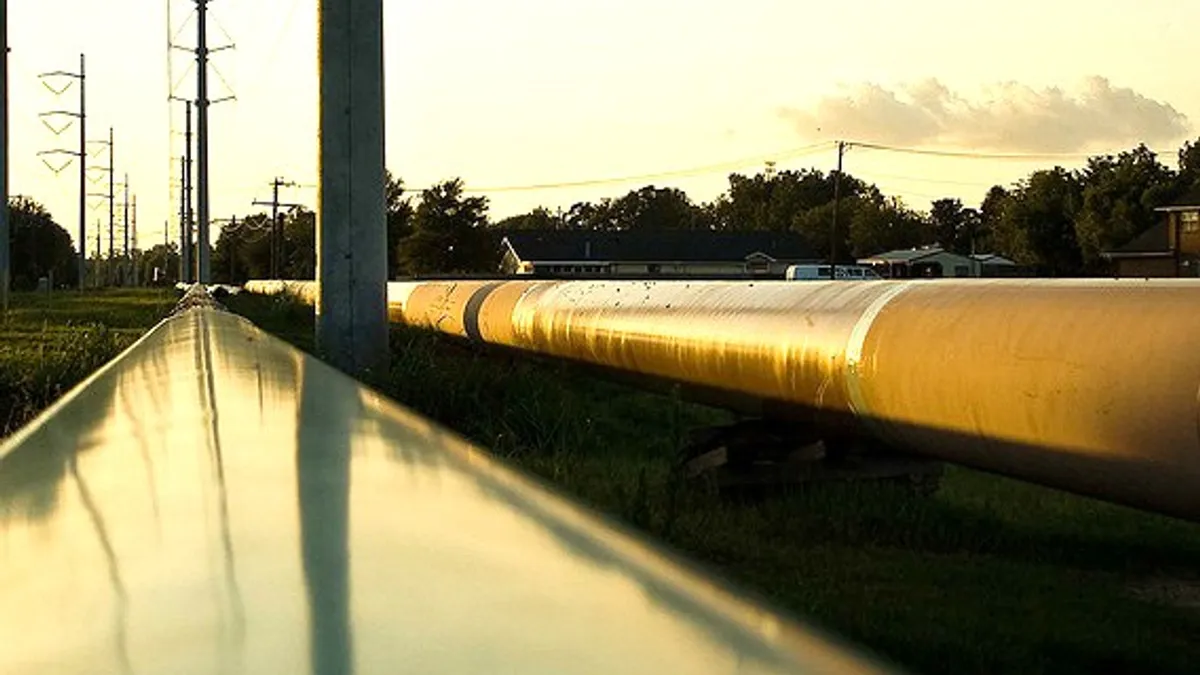Dive Brief:
- Project delays and a stringent siting process have pushed the cost of the Atlantic Coast Pipeline 20% higher or more, Duke Energy CEO Lynn Good said this week during an earnings call.
- Work has begun on the 600-mile pipeline under limited notices to proceed issued by the Federal Energy Regulatory Commission. But officials say a stringent permitting process and delays have pushed costs to $6 billion to $6.5 billion. ACP was originally estimated to cost $5 billion.
- The project will move gas through parts of West Virginia, Virginia and North Carolina. In the Tarheel State, Gov. Roy Cooper is under fire for refusing to answer questions regarding the negotiations that led to the pipeline's approval.
Dive Insight:
Duke Energy CEO Good told analysts and reporters this week that costs have risen on the pipeline, but added that a recent cold snap in North Carolina illustrates that the Atlantic Coast Pipeline is necessary.
"During a record cold weather in early January or heavy demand hit homes, hospitals and industrial buildings caused natural gas prices to soar due to gas transportation constraints in North Carolina," Good said.
Recent approvals by the North Carolina Department of Environmental Quality, along with permits from the Army Corps of Engineers, brings the project "several steps closer to beginning full construction," Good added. ACP is expected to be in service late 2019.
The pipeline will carry fracked natural gas from producers in West Virginia to markets in multiple states. Duke owns 47% of the project and will use the gas for to power generation; lead developer Dominion Energy owns 48%, while Southern Co. owns 5%.
But controversy over the pipeline continues in North Carolina. Gov. Roy Cooper (R) has declined to answer questions about a mitigation fund of almost $60 million, which pipeline developers agreed to around the same time the state issued a much-needed water quality permit.
Senate Rules Chairman Bill Rabon and House Rules Chairman David Lewis last week pressed Cooper's administration for answers, but were rebuffed, according to media reports.
Lawmakers chose to direct the mitigation fund to schools along the pipeline's route. Rabon and Lewis have indicated that a subpeona is not out of the question, issuing a joint statement questioning Cooper's motives for refusing to answer their queries.
"Gov. Cooper’s refusal to answer simple questions surrounding the $57.8 million he obtained from the energy companies building the Atlantic Coast Pipeline just before granting them a key permit to advance it is deeply disturbing and frankly unacceptable," they said.















